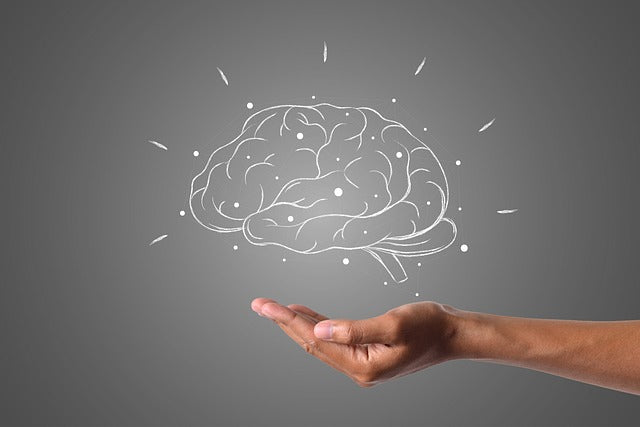Seventy Million Americans Just Can't Get Enough Rest
"Sleep is the fuel of life," says Gayle Green, author of Insomniac, a book she wrote after travelling the world interviewing neurologists, sleep researchers, doctors, psychotherapists, and insomniacs like herself. We spend a third of our lives sleeping, because it is utterly restorative and without it, we are, says Green, deprived of a "basic kind of sustenance." During sleep, the brain and body repair and detoxify.
Yet insomnia is all too common. Transient insomnia ( less than 2 weeks in duration) affects up to 80% of Americans annually, while up to a fifth suffer insomnia lasting more than a night but less than three months.[i] One out of every ten Americans suffers from chronic insomnia—unable to get a good night's rest at least three times a week for more than three months.
A total of somewhere between 50 million and 70 million Americans are plagued by sleep disorders, according to the Institute of Medicine. And though most adults need between seven and nine hours of sleep a night, over a third of us regularly get less, according to the Centers for Disease Control (CDC). In fact, the CDC reported recently that 9 million Americans are taking sleeping pills; in part, says study author Yinong Chong, due to lost sleep because of stress and demands from work and family.
Lost sleep can have serious consequences. Aside from fatigue, poor concentration, daytime sleepiness and increased risk of accidents, sleep deprivation and sleep disorders are linked to an increased risk of hypertension, diabetes, obesity, depression, heart attack, and stroke.[ii] A mere four days of deprivation of REM impairs brain plasticity and the generation of new neurons. Chronic sleep disorders may also increase the risk for developing Alzheimer 's disease.[iii] And too much "sleep debt"—too much chronic sleep deprivation may actually damage the ability to catch up on lost sleep, according to Fred Turek, a sleep researcher at Northwestern University.
Your Natural "Sleep" Hormone: Melatonin
For several billion years, the rising and setting sun has shaped our circadian rhythms, including sleep and waking, cycling of our body temperature, metabolism, hormone production and even the activity of our genes.
Our sleep naturally follows the rhythm of day and night. The area of the brain that regulates our circadian rhythms (called the suprachiasmatic nucleus), lies near our optic nerves. Nighttime's absence of light signals the brain and stimulates it to produce the natural hormone, melatonin. Usually our melatonin levels start to rise around nine pm, an hour or two before we feel called to sleep.
Melatonin production is almost completely suppressed by daylight. But with the onset of evening and night, levels of melatonin steadily rise and as they do, we tend to get drowsy. Sleep becomes inviting.
Though melatonin is a hormone, it is also contained naturally in some foods, such as tart cherries, walnuts and orange bell peppers. Since it is essentially edible, the U.S. Dietary Supplement Health and Education Act of 1994 allows it to be sold as a dietary supplement, like vitamins and minerals.
Melatonin is suppressed by bright indoor lighting, and television, computer and phone screens. Melatonin cycles and timing can be disrupted by stress, exposure to light at night, shift work, jet lag, and aging..[iv],[v],[vi],[vii]
Restoring Melatonin Levels Can Benefit Sleep
Prescription sleep aids can carry risks and can lead to dependence. They are not designed for long-term use, according to the Harvard Health Letter. Short term memory loss has been well documented.[viii] More serious consequences may occur over time—the prestigious British Medical Journal reported on 1,796 patients suffering from Alzheimer's disease and 7,184 healthy individuals without the disorder. The researchers concluded that those who had used benzodiazepines for sleep or anxiety had a 51% higher risk of the disorder. Among people who took the medications for more than six months, the risk soared to two-fold higher.[ix] Though correlation does not prove causation, this is cause for concern.
What about taking an all-natural approach? Supplementing with low doses of natural melatonin before going to bed can benefit sleep. Doses as low as 1/10th of a milligram have been proven effective, and lead to peak serum melatonin levels within the normal range of nocturnal melatonin levels in untreated people. Melatonin brings sleep on more quickly and allows individuals to sleep longer.[x]
In fact, a meta-analysis of nineteen different studies on a total of 1,683 individuals found that melatonin significantly decreased time to fall asleep, while increasing total sleep time. Many individuals reported that they felt their quality of sleep improved.[xi]
Melatonin may be remarkably effective at reducing jet lag, even when traveling through five or more time zones.[xii]
Beyond Sleep: The Potent Antioxidant Effects of Melatonin
Melatonin turns out to be a powerful antioxidant and free radical scavenger with the capacity to suppress oxidation and inflammation, and even modulate the function of our mitochondria, the energy powerhouses inside our cells.[xiii] Studies have shown benefits in everybody from high intensity athletes to former smokers. Chronic heartburn and other symptoms of gastroesophageal reflux disease have improved significantly after regular nightly doses of melatonin. Studies have shown melatonin helps improve memory, decrease lipid peroxidation, increase insulin sensitivity, and offer many other beneficial effects.
How Much Melatonin Is Effective?
People often ask, "How much melatonin should I take to sleep?" According to the National Sleep Foundation, it is wise to start with the smallest dose about thirty minutes before bedtime—as small as a mere two tenths of a milligram, and increase it if necessary.
When the typical oral supplements containing melatonin are taken, only 15% of the melatonin is absorbed. A liquid liposomal formulation can provide rapid distribution and uptake. It also benefits those highly sensitive to melatonin, since a liquid format can be easily titrated to a very low dose.
You May Also Be Interested In:
Four Essential Tips for Boosting Your Energy Naturally : https://www.quicksilverscientific.com/resource-center/the-blog/four-essential-tips-for-boosting-your-energy-naturally/
References:




